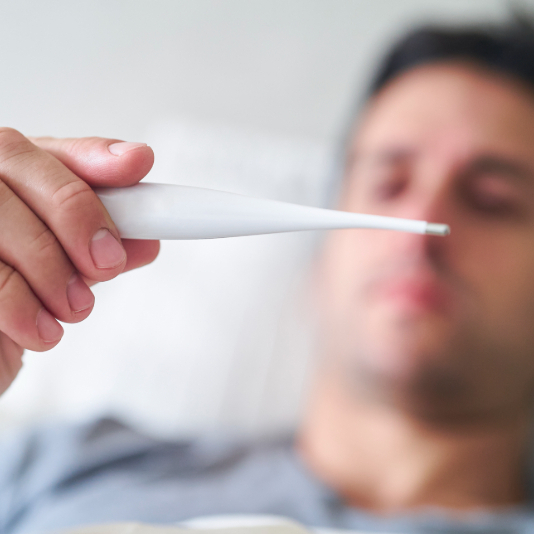Can You Get an STD from a Toilet Seat?

January 29, 2024
Nobody enjoys using a public restroom, especially if it is unclean. In addition to various germs that have found their way onto a toilet seat, you might worry about contracting a sexually transmitted disease (STD).
Our expert Edward Liu, M.D., chief of Infectious Disease at Jersey Shore University Medical Center, weighs in with what you need to know.
What Can Live on a Toilet Seat?
Fortunately, the viruses, bacteria and parasites that cause STDs can’t generally survive on hard surfaces such as a toilet seat.
“There is virtually zero chance of contracting an STD from a toilet seat,” Dr. Liu says. Bacterial STDs cannot survive outside the body very long. Some viral STDs like herpes, hep b can survive outside the body for a very limited period of time.
Theoretically, it could be possible to contract an STD if there was fresh blood on the seat and you had an open wound that came into direct contact.
“But if the seat looks clean, it’s fine,” says Dr. Liu.
Should You Use a Paper Toilet Seat Cover?
The truth is, you’re unlikely to catch anything from a toilet seat unless you can see liquid or other matter on the toilet seat.
On top of that, paper is porous, so it wouldn’t stop germs from getting through to the skin.
But it’s understandable why people want to cover public toilet seats. “While a toilet seat is unlikely to be the cause of transmission, it is not a bad practice to clean and or cover the toilet seat before use to give yourself peace of mind,” says Dr. Liu.
How Are STDs Transmitted?
While different STDs are transmitted in different ways, all can be transmitted through forms of sexual activity including:
- Skin-to skin contact
- Genital-to genital contact
- Oral- to-genital contact
Bacterial STDs: Bacterial STDs are transmitted through sex without the use of a barrier method such as a condom.
Viral STDs: Viral STDs can be transmitted in various ways depending upon the virus. “For example, viruses like HIV can be transmitted through sex without a barrier protection or blood exposure such as needles,” says Dr. Liu. Viruses such as HPV and herpes can be transmitted via skin-to-skin contact, which occurs when bodily fluids are shared from skin to skin. There doesn’t need to be an open wound or sore for transmission.
STD Parasites: STD parasites like pubic lice, trichomonas live on or in a host. These are usually transmitted by vaginal or anal sex. There is a low possibility of transmission if you come into contact with contaminated fabrics like sheets or towels.
How to Prevent STDs
Since the main method of transmission for many STDs is sexual activity, the best way to protect yourself is to practice safe sex. Dr. Liu recommends using condoms as barrier protection.
Other good practices include:
- Getting tested before having sex with a new partner.
- Talking with new partners about sexual histories.
- Consider taking a medication such as pre-exposure prophylaxis (PREP) to reduce the possibility of contracting HIV.
- Consider getting the HPV vaccine if you are 26 years old or younger.
- Not sharing injection needles or other equipment
- When getting a tattoo, select a licensed parlor with proven cleanliness.
Next Steps & Resources
- Meet our Source: Edward Liu, M.D.
- To make an appointment with a primary care doctor near you, call 800-822-8905 or visit our website.
- Learn more about treatment for infectious diseases at Hackensack Meridian Health
The material provided through HealthU is intended to be used as general information only and should not replace the advice of your physician. Always consult your physician for individual care.






